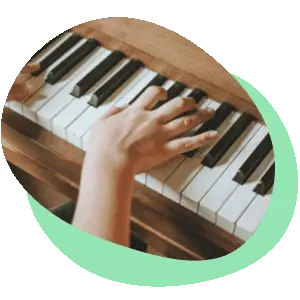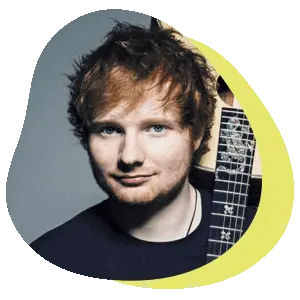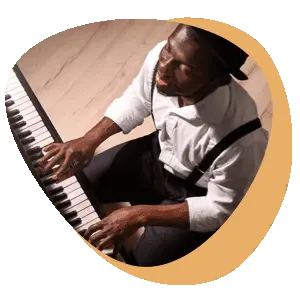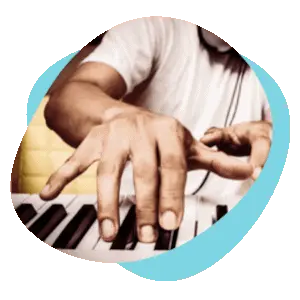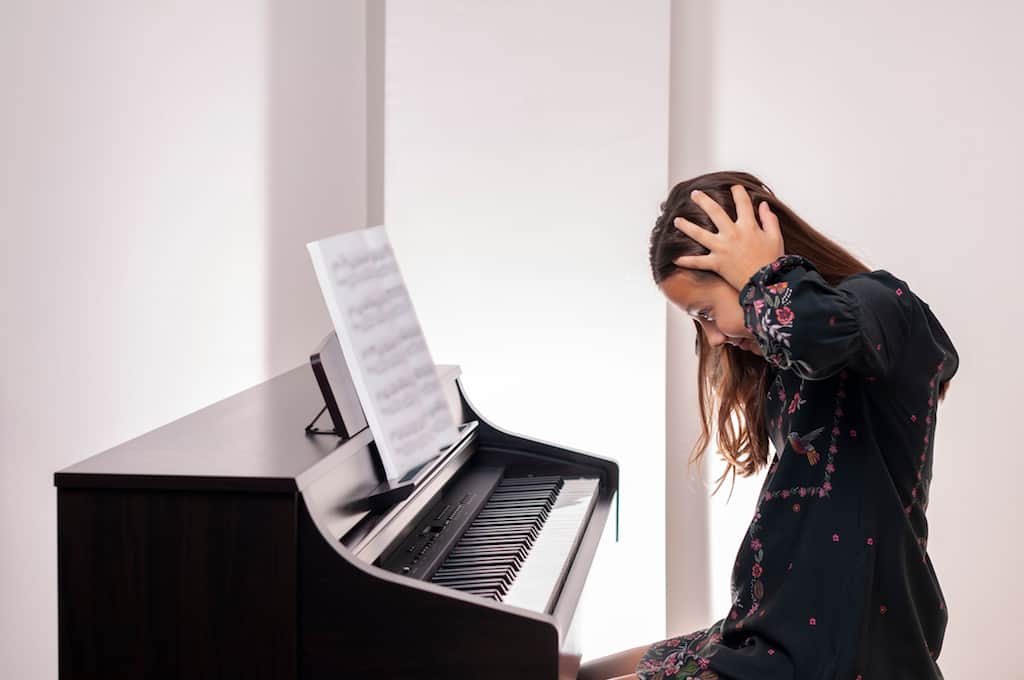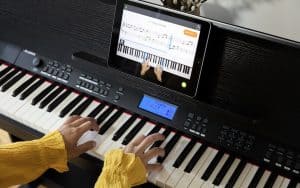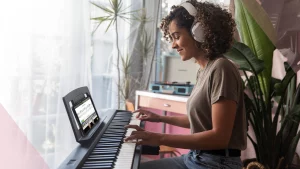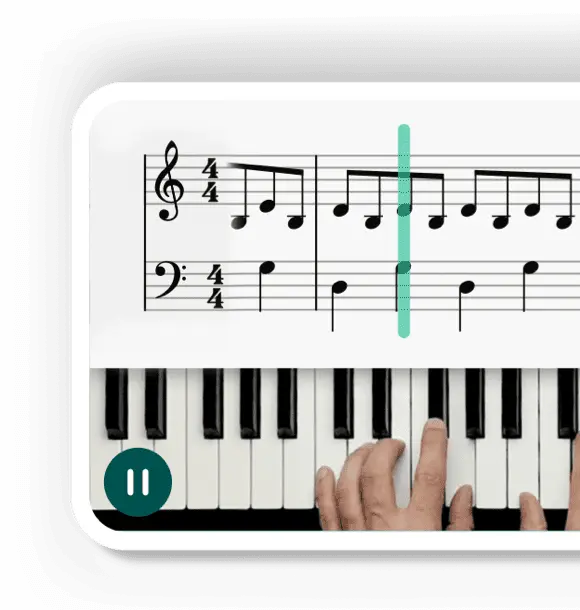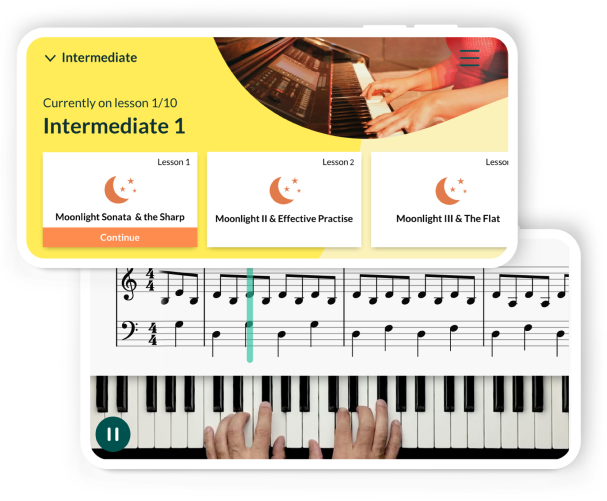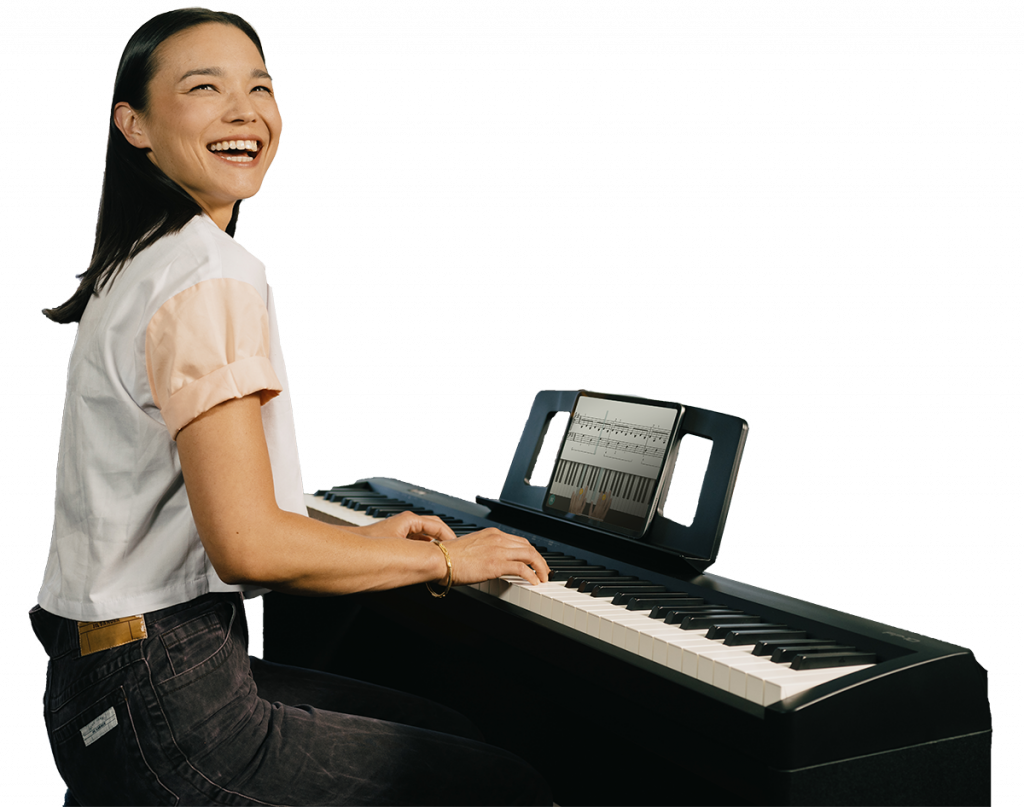“I can’t play piano” ?
There are two reasons you’ll never say this again. Firstly, because by the end of this article you will have played music, even if you don’t have a piano. Secondly, because this article will turbo charge your learning, by exposing common limiting thoughts and replacing them with empowering ones. This is done through exploring:
- what it means to be a pianist
- the impact of your personal motivations, values and goals
- the purpose of piano in your lives
- the role played by those who listen to your music
- mindset and how it influences practice
As always, there are plenty of opportunities to practice as you read with tips, links to several Skoove songs and other resources.
From day 1 you are a pianist! – Roberta Wolff
This is a mantra I share with every new student; “from day 1 you are a pianist!”
Pianist, as defined in the Cambridge dictionary, simply means “someone who plays the piano”. There is no reference to level, frequency or capacity in which the playing is done. This presents an interesting question. If level of achievement or earnings are not factors in calling one’s self a pianist then what are?
For me the answer is engagement and commitment. I do not believe that there is some invisible point that needs to be reached before the noun ‘pianist’ is ascribed. For some, though, it is preferable to distinguish between ‘amateur pianist’ and ‘professional pianist’.
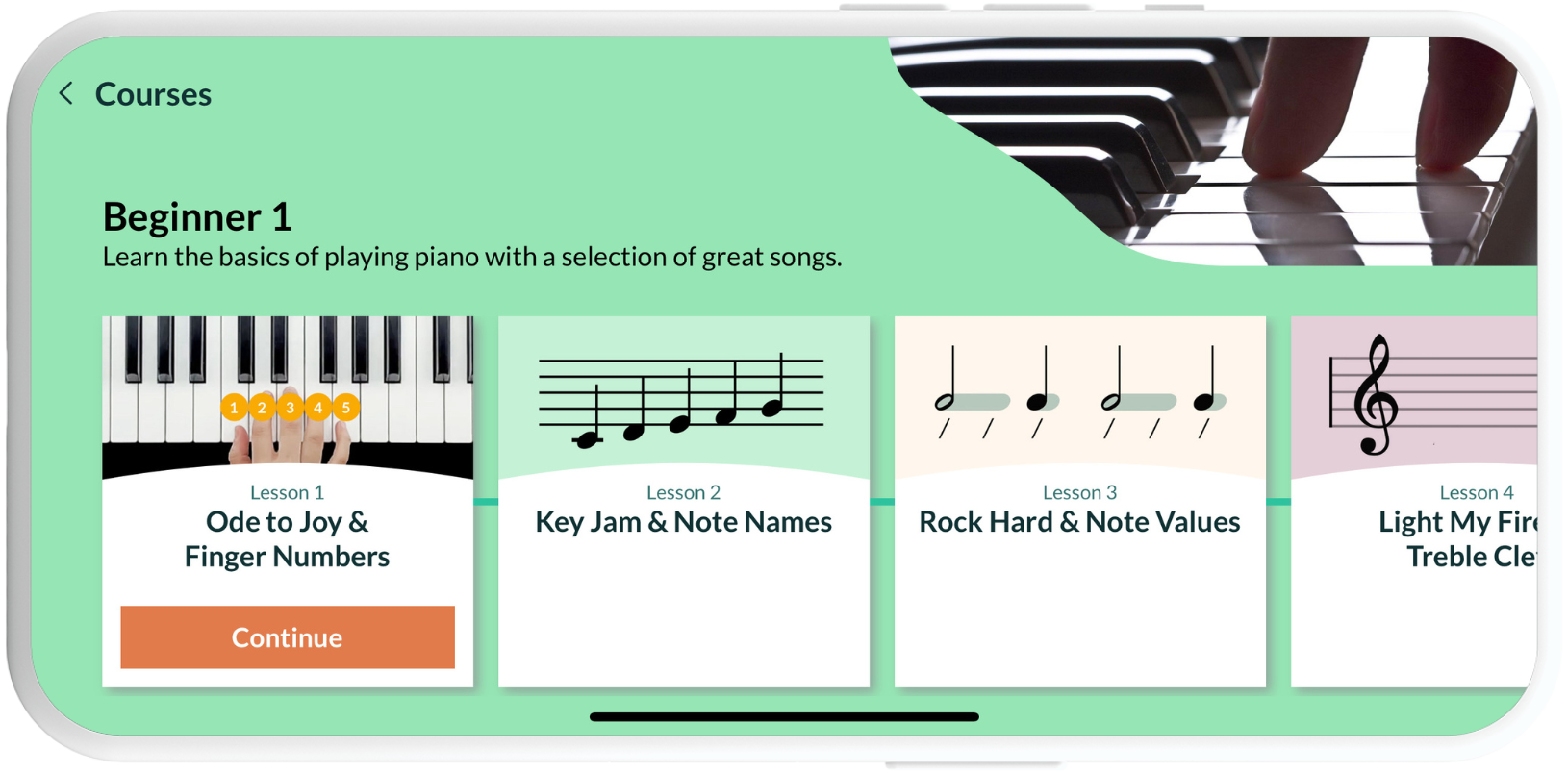
No credit card details required
Why is this important…isn’t it just a word, a label?
It comes back to engagement and commitment. In adopting the title ‘pianist’ or ‘amateur pianist’ you are acknowledging your commitment to your learning, growth and a journey that has the potential to enrich you whole life. Piano playing is no longer something you try to do, it becomes a part of who you are. This level of identity with your passion places you in the strongest position to explore and develop it.
The subtle shift
I hear this all the time:
“I can’t play piano…well I am trying to learn, but I am not very good”. This thinking reinforces the message “I don’t measure up” it also undermines the learning process.
My challenge, if you choose to accept it, is to use this instead:
“I am an amateur pianist and I love exploring the instrument in ways that are meaningful to me.” As well as empowering the learning process, this makes it more fulfilling and from that positive place results are achieved more quickly.
Time to Play
If this is the first time you are exploring playing the piano the Skoove app is a great place to start. It provides all you need to know in small chunks. It also offers autonomy in how you learn. In this piece you become familiar with finger numbers while playing the opening of Lean on Me piano sheet music. Enjoy the start of your journey as a pianist.
Take this opportunity to reflect on what you have just done. What curiosity has the experience kindled in you? This is your project and so the path you take will be unique to you. Will you explore another piece, read a Skoove blog or continue reading this? If you are hooked, this article on choosing an instrument might be just what you need.
“I can’t play piano” … “By whose standards?”
Once learning has begun, many pianists become quite apologetic about their music making. This is grounded in a feeling of having to measure up to some external standard or work to some predefined process. In fact, this is not always helpful. The benefits of expert guidance are not being disputed. However, I am acknowledging the relevance of your motivations, values and goals in the learning process. Read this article if you want to think a little more about curating your own learning experiences.
The Power of Personal Goals
Clear personal goals provide a success criteria enabling you to evaluate your own progress. They also help you choose what to learn when. This is very motivating. Here are some common reasons for learning:
- to express yourself beyond words
- to communicate with friends and family
- to have a creative outlet
- to have an escape
None of these reasons require advanced level technique. However, they all ask the pianist to explore human emotions and express them in music.
Time to Play
The Skoove app provides arrangements of popular songs. This means that from the very start of your learning you are able to engage with pieces which have emotional substance. Give yourself time to become familiar with the piece and then play it with the intention of communicating what it means to you, Fly me to the Moon:
Exercises and scales are useful as a way of developing keyboard skills, theory knowledge and technique. You can explore them here. However, none of these elements will move a listener. It is what you bring to the music and how you communicate it that makes the music moving. One of the first means to achieve this is to experiment with playing louder and softer.
Here is a video on artistry, expression and enjoyment.
The Skoove app also provides songs that you can play with a backing track. This supports rhythmic playing, additionally, getting lost in the full sound is the perfect way to experiment with artistry and communication. Here is We will rock you.
If you are playing piano for your own reasons and pleasure then you are already fulfilling the purpose of music making. If you are sharing your music making with your family and friends, it worth remembering that what moved you to learn is the same as what moves them to listen. That isn’t note perfection, accuracy of fingering or posture, standard of instrument. It is commitment to the message of the music.
Mindset
In addressing the power of thoughts we look to mindset. “I can’t play piano” or “I can’t play piano but I try” are limiting thoughts from a fixed mindset. They dis-empower the learning process. Choosing a growth mindset puts you in a great place to learn.
A fixed mindset is, “believing your qualities are carved in stone,” while a growth mindset is “the belief that your basic qualities are things you can cultivate through your efforts” – Dweck, 2016. Mindset: The New Psychology of Success. pp. 6-7.
Developing a growth mindset internal dialogue around your piano learning is a huge advantage. Here are some comparisons to get you started.
Fixed Mindset
Here are some examples of fixed mindset and how it is communicated in piano.
? My potential is predetermined – There is not a single musical person in my family.
? Failure is the limit of my abilities – I will never be able to play for others without messing up.
? I avoid challenges – No I don’t want to try that.
? I stick to what I know – I don’t want to play jazz I have only ever played classical music.
? I will never improve – If I am lucky I might get to level 1.
? I am either good at it, or I am not – I will give it 1 month if there isn’t progress I will know to stop.
? There is no point in trying – I always wanted to play but now I am too old to learn piano.
Growth Mindset
Here are some examples of growth mindset and how it is communicated in piano.
? I can learn to do what I want – I know that effort and commitment to practice will make the difference in my learning
? Failures offer opportunity and growth – I was not pleased with how that performance went. What can I learn from the experience to make it better next time?
? My skills can be developed – I am going to read and watch everything I can about learning piano.
? I embrace challenges – I am curious in trying out different styles of music.
? I learn from feedback – So you think that improving my sight-reading will help? Ok I will give it a go, what do you suggest?
? I keep trying – My mistakes now will help me learn and grow, and they won’t be my mistakes in a month.
? I am inspired by other people’s successes – I will speak to my friend who started learning a year before me and get some advice.
Those with a growth mindset are more likely to see every environment as a learning environment and scan for opportunities to improve their skills and enhance their knowledge – Positive Psychology.com
You can read the full article, Growth Mindset vs. Fixed Mindset here.
Time to Play
Let’s play Beauty and the Beast. The Skoove app will take you through step by step, starting with the right hand and then moving to the left. Take the opportunity to become aware of your internal dialogue. What is your dominant mindset at this moment?
This piece presents a challenge in the quaver notes, E, G, B, C. Experiment with a flexible wrist, aligning your arm behind the finger playing to provide the best support. Consciously adopt growth mindset thoughts as you work with this challenge.
There are always ways to support the learning process, check out this article.
Flow
The state of flow offers potential for a rich learning experience. If you have ever been so absorbed by what you are doing that…
- time seems to disappear
- you are completely engaged in your process
- you are focused on the moment
…then you have experienced flow. This is a great place to practice from. Not only are you working efficiently but it is a highly enjoyable state, one you are eager to return to day after day.
the holistic sensation that people feel when they act with total involvement. – Csikszentmihalyi PositivePsychology.com
You can read more about flow in this article.
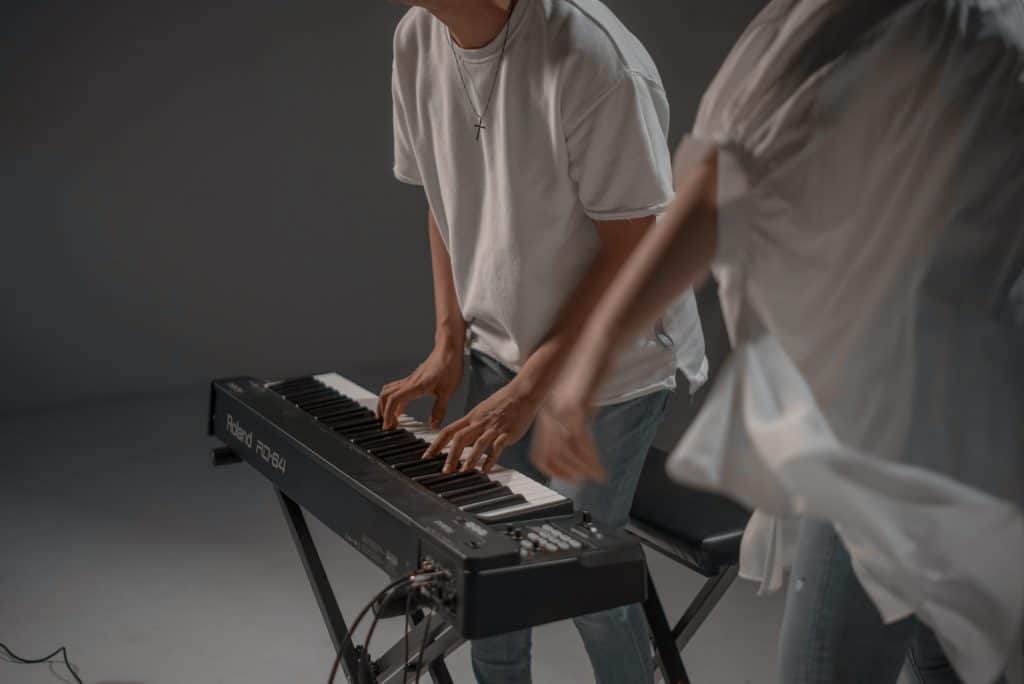
Reaching Flow
There are two important factors that you control which determine your potential to reach a flow state during piano practice. They are:
- the level of challenge – it needs to be well matched to your skills. Too easy and you are not absorbed, too hard and frustration takes over.
- the quality of internal dialogue – highly self-critical dialogue will lead to dissatisfaction which moves the experience out of flow. An internal dialogue based on curiosity and growth mindset moves towards the flow state.
Time to Play
You have already practiced with growth mindset. Now it is time to work towards flow state. To do this go the Skoove course that you think presents just the right level of challenge to you. Choose a piece that you are motivated to learn. Begin learning it. The Skoove app will wait for you as you find the notes for the first time.
Top Tips:
? Focus on the process not the goal
? You can always choose another piece if the level of challenge is not quite right
? Heighten awareness in your fingertips, to the sound you are making and to your movements. This will add depth to your experience as it takes you beyond the cognitive task of playing the right notes and ignites the aural and kinesthetic sense also.
? Enjoy being at the piano rather than pushing for a perfect performance.
Improvising is a wonderfully creative activity and because there is no ‘wrong’ it is very conducive to flow state. If you want to learn more about improvising read this article.
Playing piano combines knowledge, skill, communication and expression. The most moving performances say something about what it is to be human. Accepting ones current level is a prerequisite to moving on. I hope you feel empowered to say:
- “I can play the piano!”
- “I am happy with where I am now!”
- “I know curiosity and effort will get me to where I want to be!”
And most of all, enjoy the process!
Author of this blog post:
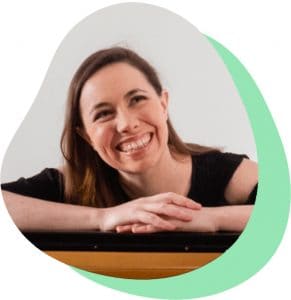
Roberta Wolff started piano lessons at the age of five and is still enjoying learning! Currently, she teaches piano pedagogy and performance pedagogy at post graduate level in the UK. Her other work includes running a private teaching practice for students of all ages and abilities and creating learning and practice resources. Roberta loves writing as a means to supporting others on their piano journey.



